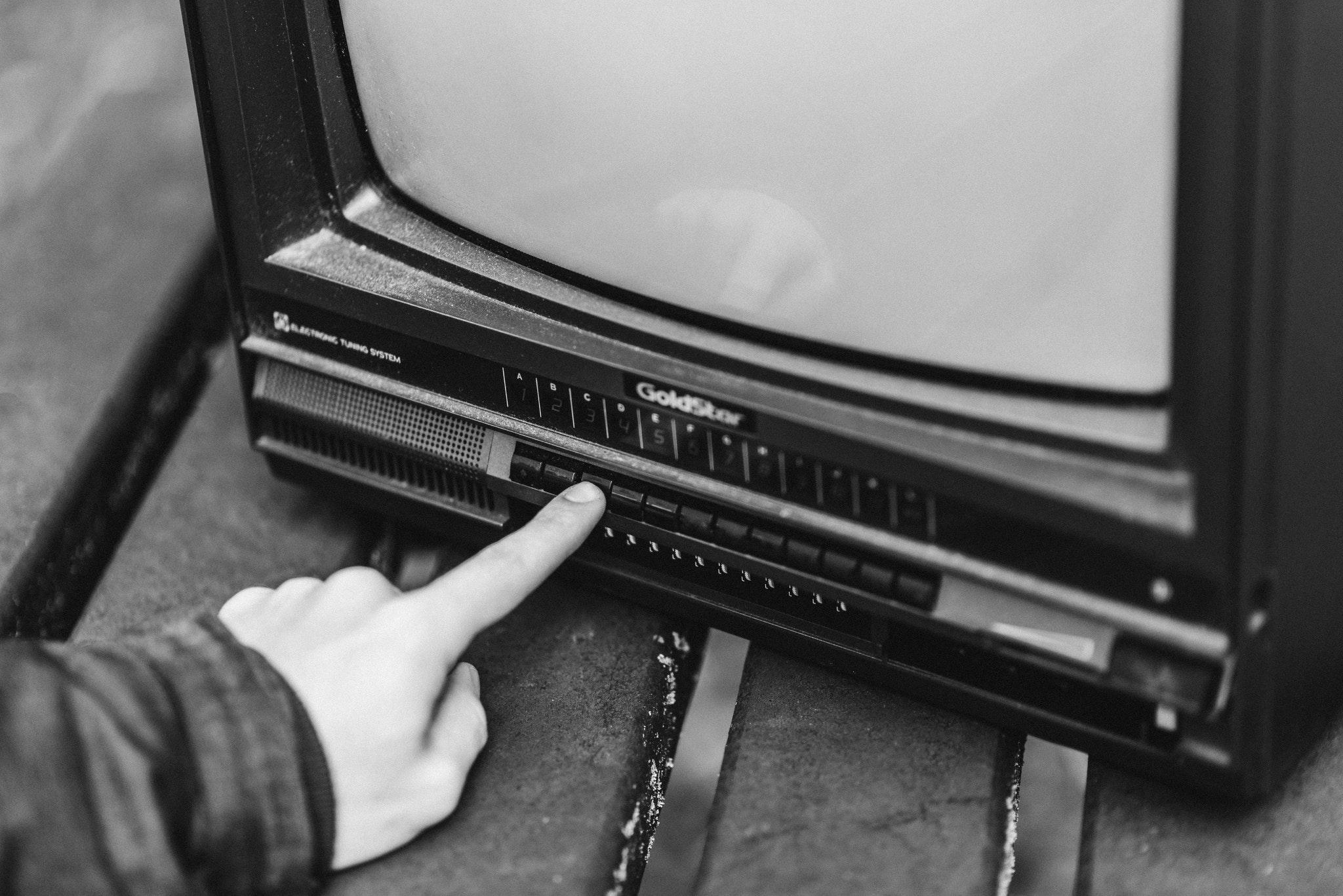Exploring the Moral Underbelly of Derren Brown
When it comes to niche, British cultural figures who dominated my teenage years, there is perhaps no other I am more obsessive over than Derren Brown. The self-proclaimed mentalist who practically owned Channel 4 for most of the late 90s and early 2000s; the presenter whose specials and live shows regularly attract millions of viewers, and sell out theatres; and a man who is pretty fab at caricature painting too - seriously, look it up. I still remember the day I watched my first ever Derren Brown special, Apocalypse; where a man is supposedly tricked into believing that he has survived a zombie plague sweeping the nation, and has to make Telltale Games-esque choices in front of hidden cameras (and, of course, Derren Brown hunched in front of several screens in the back of a van off-screen). Being ten years old at the time, I was perhaps one of the most suggestible people watching the programme live on Channel 4 as it aired; I was fascinated at how one man could have so much of his life thrown upside down in a split second, and how the viewing public was allowed intimate access into, really, what was quite a torturous experience for a single unwitting participant.
Of course, as is obligatory at the end of Derren Brown specials, the cameras are revealed; Brown jumps out the back of his observation van, and reassures our hyper-ventilating protagonist that all is well once again. Fade to black, credits roll - hey, fancy watching the Bridesmaids Film4 premiere? The thing that most colours my memory of watching this special was my deep-felt concern for the participant; personally, I would most likely have had several panic attacks and run off crying were Derren Brown to spring out from behind a pillar at the climax of what would have been an undeniably traumatic experience. Brown is always quick to reassure the viewer that participants are carefully vetted by himself and the production team before any of this actually happens - and, to a certain extent, I do believe this, and think that Brown is genuinely sincere and empathetic to his participants. However, I do worry.
Perhaps things fell into their most morally dubious area, however, when I went through the Derren Brown back-catalogue, and watched one of his most controversial specials ever; Russian Roulette. Broadcast in 2003, Brown spends most of the episode whittling down a group of volunteers to just one; who has the incredibly daunting task of loading the chamber of a pistol with bullets, and then sitting in the corner of a dimly lit shed (in a rather foreboding location that is described as a country with lax gun restrictions) whilst they watch Brown participate in a solo game of Russian roulette. Even though I first watched this episode about 17 years after it was first broadcast, I don’t think I’ve ever sat through a more squirmish bit of television; obviously, I knew that Brown came out of the ordeal alive, but there was still something extremely dark about watching him fire off an empty chamber into the corner of the room, and watching his pained expression as he realised his chances of survival had just decreased significantly.
The whole point of the episode was to prove that Derren Brown was able to foretell exactly where the chosen participant had placed the lethal shot in the barrel, based on their personality and previous psychological testing alone. Whilst I am certainly highly sceptical on this, there is something undeniably tantalising about the conceit; after picking his would-be executioner, Brown pulls him out of the line-up and lightly congratulates him just after having said participant shot staring up into a spotlight - their facial expression a mix of nervous excitement and tinged with the thought of ‘Um, so what actually happens if I end up vicariously shooting Derren Brown in the head on live television?”
After the stunt was broadcast, the inevitable happened; everyone in any position of responsibility stepped in to reiterate that the stunt was, for the most part, safe. The unnamed, seedy country which allegedly had loose-enough gun laws to allow for the broadcast turned out to be the slightly-less ominous Jersey (which, obviously, has just as strict gun-laws as mainland Britain), and the police released a statement claiming that they had been in touch with Channel 4 and the producers to ensure that no weapons in breach of the law were actually used. Indeed, the supposedly ‘live’ broadcast was also shot on a delay; meaning that, even if a nasty accident did happen, Channel 4 would easily be able to pull the plug, rather than traumatise an entire nation eagerly glued to their television screens. Nevertheless, Brown has repeatedly stated in interviews that, even if they were using a blank, shooting himself with such a projectile would still cause incredibly serious injury and death - and I definitely think that broadcasting the spectacle on a delay was a moral necessity on the part of Channel 4.
Still, I am bothered by the fact that the word ‘LIVE’ is still so prominently displayed during the final climactic event - Russian Roulette is certainly the special of which I feel the most uncomfortable about. Not only just about the content of the broadcast itself, but the culture that it encouraged; television producers have constantly tried to one up each other in terms of spectacle throughout the late 20th and early 21st century, and I do see Russian Roulette as a reflection of this competitiveness in its truest form. No matter how sincere Brown’s intentions may have been, the lack of clarity that Channel 4 initially demonstrated to its viewers over the portrayal of the event seems rather sketchy at best, and though I am certainly relieved that safety measures were deployed, such measures should have been made clear to the curious viewing public from the very start. Both in terms of practicality, and in curbing the already disturbing nature of the broadcast itself.
Derren Brown works at his best during his more recent audience specials; in particular, his Netflix special Miracle on the techniques of faith healers, and so-called spiritual gurus, comes to mind. An ex-evangelical Christian himself, Brown takes the audience on a delightful tour of mentalism and illusion to illustrate just how potent the power of the human mind and placebo can be. At no point watching the programme did I feel uncomfortable, or in any way worried for the participants - I was more so fascinated by the beautifully crafted narrative spun by Brown, and the moral questions raised on the practices of these spiritual leaders in positions of power around the world.
Nevertheless, other such allegations have broken in the past about Brown using unseen trickery and fakery to achieve the spectacles as shown in his specials; indeed, in the wake of the aforementioned 2012 special Apocalypse, I remember reading several articles decrying the experiment, as our primary participant appeared to have a casting profile listed online (leading many to suspect, justifiably so, that the entire special was a charade based around a single, all-knowing actor). Be that as it may - in fact, I’d be much more relieved to discover that he was indeed an actor - it still is certainly a very gripping piece of television. Perhaps this is the biggest dilemma facing Derren Brown when conceiving these specials; where is the line between the care and safety for those participating, and how much of these measures do we reveal to the audience whilst still producing a captivating piece of television? How far do we dare extend the boundary of what can be achieved on live television, whilst still falling within the realm of legal and moral justification?
These questions are those that I, an avid consumer of all things Derren Brown, often ask myself. As a man, I have a great amount of respect for him; not only for living as an openly gay man in the public eye for the past twenty-one years, and his incredible artistic skill (seriously, if you haven’t done so yet, do look it up), but also for the sheer amount of excitement and intrigue he has generated around his mentalist techniques over the course of his career. However, the lingering moral proclivities of mine remain; for the most part, Brown has left the more morally grey specials, like Russian Roulette, behind in the rather swampy sludge of early-2000s Channel 4 programming, something I very much support. Nevertheless, it will certainly be interesting to see how Brown tackles his future projects with both care and consideration - as when he gets the balance right, one cannot deny the slight undercurrent of, well, magic that he creates.



0 Comments Add a Comment?